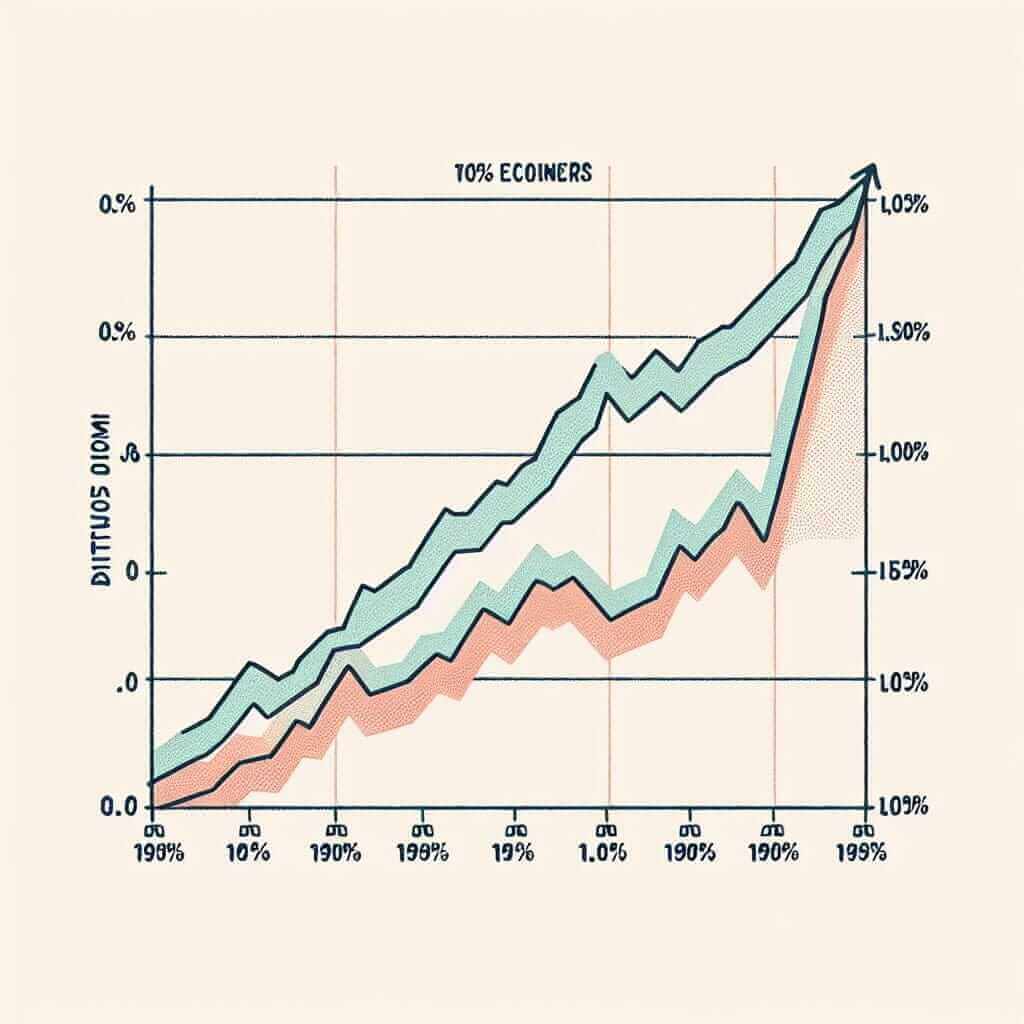Income inequality, a pressing global issue, frequently surfaces in IELTS Writing Task 2, prompting test-takers to analyze its multifaceted impacts on societies. This essay will delve into the effects of income inequality, providing a comprehensive analysis and a band 8 sample essay to guide your IELTS preparation.
Sample IELTS Essay Question:
Some people believe that the widening gap between the rich and the poor is a serious problem. Others argue that it is acceptable as long as it benefits the overall economy. Discuss both views and give your own opinion.
Essay Analysis:
- Type: Opinion essay (Discuss both views and give your opinion)
- Keywords: Widening gap, rich, poor, serious problem, overall economy.
- Key Issues:
- Arguments for the negative social impacts of income inequality
- Counterarguments emphasizing economic benefits
- Your balanced opinion
Sample Band 8 Essay:
The ever-increasing disparity between the wealthy and the impoverished has become a source of significant debate. While some argue that this gap is detrimental to society, others contend that it is justifiable if it fuels economic growth. This essay will explore both sides of this complex issue before presenting a balanced viewpoint.
On the one hand, a widening income gap can lead to a myriad of social problems. Firstly, it can exacerbate poverty and social unrest. When a significant portion of the population struggles to make ends meet while a select few enjoy lavish lifestyles, resentment and frustration can fester, potentially resulting in crime and instability. Secondly, income inequality can hinder social mobility. In societies where wealth is concentrated in the hands of a privileged few, individuals from disadvantaged backgrounds face significant barriers to education, healthcare, and economic opportunities, perpetuating a cycle of poverty.
Conversely, proponents of income inequality argue that it is a necessary consequence of a thriving economy. They posit that rewarding innovation and hard work with financial success incentivizes individuals to contribute more to society. This, in turn, leads to economic growth, job creation, and ultimately, a higher standard of living for everyone. Moreover, they argue that attempts to redistribute wealth through taxation can stifle entrepreneurship and discourage investment, ultimately harming the economy.
While acknowledging the potential economic benefits of income inequality, I firmly believe that its social consequences are too significant to ignore. A just and equitable society should strive to provide equal opportunities for all its citizens, regardless of their socioeconomic background. This can be achieved through progressive taxation, investment in education and healthcare, and social safety nets to support the most vulnerable members of society.
Word count: 276

Writing Notes:
- Structure: Follow a clear structure: Introduction, Body Paragraph 1 (Arguments for), Body Paragraph 2 (Arguments against), Conclusion (Your opinion).
- Vocabulary: Use a range of vocabulary related to economics and social issues. Avoid repetition.
- Grammar: Pay attention to complex sentence structures, accurate verb tenses, and subject-verb agreement.
- Cohesion & Coherence: Use linking words and phrases to connect ideas logically.
Vocabulary Focus:
- Disparity (n.) /dɪˈspær.ə.ti/: a great difference, especially one that is unfair or causes problems (Ex: The income disparity between CEOs and average workers is a growing concern.)
- Exacerbate (v.) /ɪɡˈzæs.ə.beɪt/: to make a problem, bad situation, or negative feeling worse (Ex: Income inequality can exacerbate social tensions and unrest.)
- Fester (v.) /ˈfes.tər/: to become worse because it is ignored (Ex: Resentment and frustration can fester in communities plagued by inequality.)
- Hinder (v.) /ˈhɪn.dər/: to make it difficult for something to happen or develop (Ex: Lack of access to quality education can hinder social mobility.)
- Incentivize (v.) /ɪnˈsen.tɪ.vaɪz/: to make someone want to do something, usually by offering them a reward (Ex: Tax breaks can incentivize investment in underdeveloped areas.)
Conclusion
Mastering the art of crafting compelling arguments about complex societal issues like income inequality is essential for achieving a high band score in IELTS Writing Task 2. By familiarizing yourself with relevant vocabulary, practicing structuring your essays effectively, and analyzing model answers, you can confidently approach this section of the IELTS exam. Remember to delve deeper into related subtopics, such as poverty, social mobility, and economic policies, to broaden your understanding and enhance your writing.